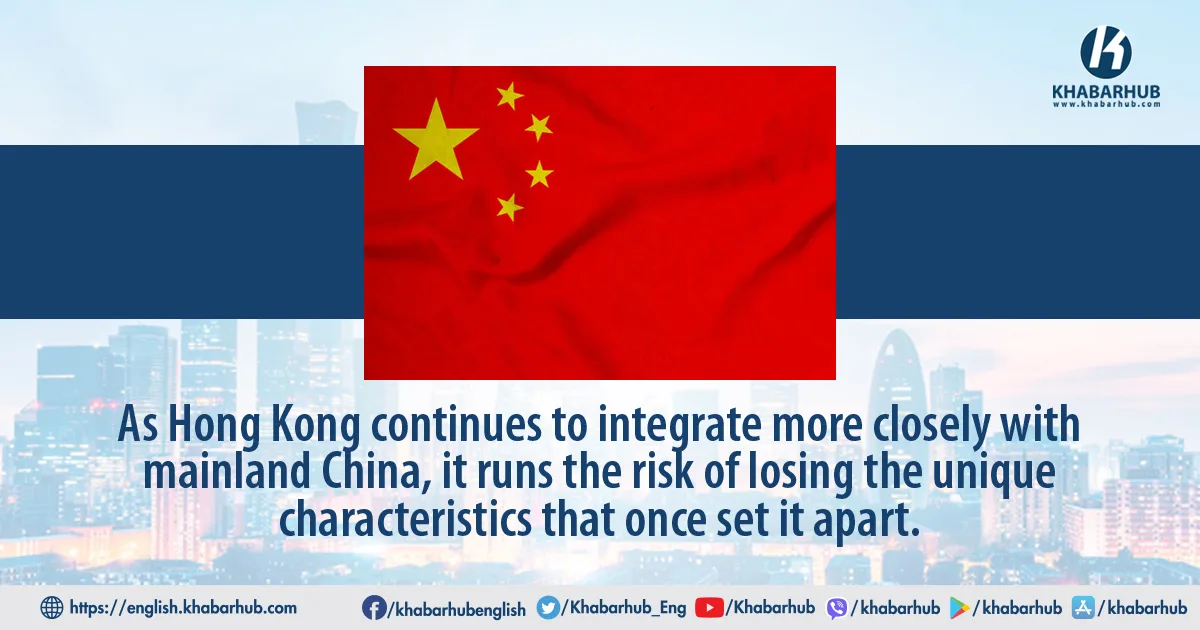The arrest of six people, including a woman, under Hong Kong’s new domestic security law for allegedly uploading seditious posts on Facebook has shocked people in Hong Kong and around the world. The arrest came ahead of the 35th anniversary of the Tiananmen Square massacre.
The charge against those arrested was that they had used a social media page to anonymously publish the posts starting in April.
In a statement, the police stated that the accused provoked hatred against the central government, the Hong Kong government, and the city’s judicial institutions, and aimed to incite netizens to organize or participate in illegal activities later.
The most shocking aspect was that the statement made no mention of sensitivity; the reality was the upcoming sensitive date.
June 4, 1989, marks the anniversary of the Tiananmen Square massacre, an event that has been scrubbed from the record by Chinese authorities and can no longer be safely commemorated in Hong Kong.
The arrests marked the first time Hong Kong’s own national security law had been invoked since it was unanimously passed by the city’s opposition-free legislature in March.
Hong Kong, where English was once the dominant language in business and educational spheres, has seen a shift towards mainland China’s Mandarin. Mandarin is becoming more prevalent, reflecting the broader trend of Hong Kong aligning more closely with mainland China.
The legislation is in addition to an already powerful national security law directly imposed by Beijing on Hong Kong in 2020 after huge and sometimes violent pro-democracy protests the year before.
The development has highlighted the radical transformation in Hong Kong since the imposition of the National Security Law in June 2020. Hong Kong is no longer described as a bastion of democracy and a global financial hub.
The National Security Law introduced by Beijing has fundamentally altered the political and social landscape of the city, pushing it towards an increasingly autocratic system.
The law, which was intended to quell dissent and secure Beijing’s control, has had profound effects on businesses, freedom of speech, and the cultural fabric of Hong Kong.
The draconian National Security Law imposed in June 2020 was Beijing’s response to the massive pro-democracy protests that erupted in Hong Kong in 2019.
This law criminalizes acts of secession, subversion, terrorism, and collusion with foreign forces. It grants sweeping powers to Hong Kong’s authorities and allows Beijing to establish a security office in the city, overseeing its implementation.
The law marked the beginning of a new era where the line between Hong Kong and mainland China has blurred significantly.
The arrest of six people for allegedly publishing seditious material on social media, made under Article 23 of the security law, indicated the extent to which the law can be used to suppress free speech and intimidate activists in Hong Kong.
Besides this, foreign businesses operating in Hong Kong have been increasingly feeling the heat. The political environment has become hostile, forcing many firms to either comply with Beijing’s dictates or exit the market.
Two international law firms, Winston & Strawn and Addleshaw Goddard, have closed their Hong Kong offices recently. American pension funds, which once saw Hong Kong as a prime investment destination, are now steering clear of the city.
The autocratic measures imposed in the name of national security are driving away foreign businesses and eroding freedoms that were integral to the city’s identity. Hong Kong is on a path towards self-destruction, stated experts.
Hong Kong, where English was once the dominant language in business and educational spheres, has seen a shift towards mainland China’s Mandarin. Mandarin is becoming more prevalent, reflecting the broader trend of Hong Kong aligning more closely with mainland China.
The political and cultural shifts are having tangible economic consequences. Office vacancies have surged, hitting a record 16.3% in March, although there has been a slight improvement since then.
Foreign firms are vacating, and while Chinese companies are beginning to inspect office spaces, they have yet to sign leases in significant numbers.
Experts said that the imposition of the National Security Law and subsequent legislative measures have cast a shadow over Hong Kong’s future as a global financial center.
The city, which was known for being a free, open, and business-friendly environment, has been rapidly eroding. Investors have become cautious, and U.S. sanctions on Chinese companies with government ties have made it difficult to invest in many of Hong Kong’s publicly traded firms.
Prominent figures like Stephen Roach, former chair of Morgan Stanley Asia, have publicly declared Hong Kong’s era as a premier financial hub over.
Roach, after publishing a critical op-ed, found himself barred from speaking at key economic conferences, a stark example of how dissent is being systematically stifled.
As Hong Kong continues to integrate more closely with mainland China, it runs the risk of losing the unique characteristics that once set it apart.
The autocratic measures imposed in the name of national security are driving away foreign businesses and eroding freedoms that were integral to the city’s identity. Hong Kong is on a path towards self-destruction, stated experts.








Comment